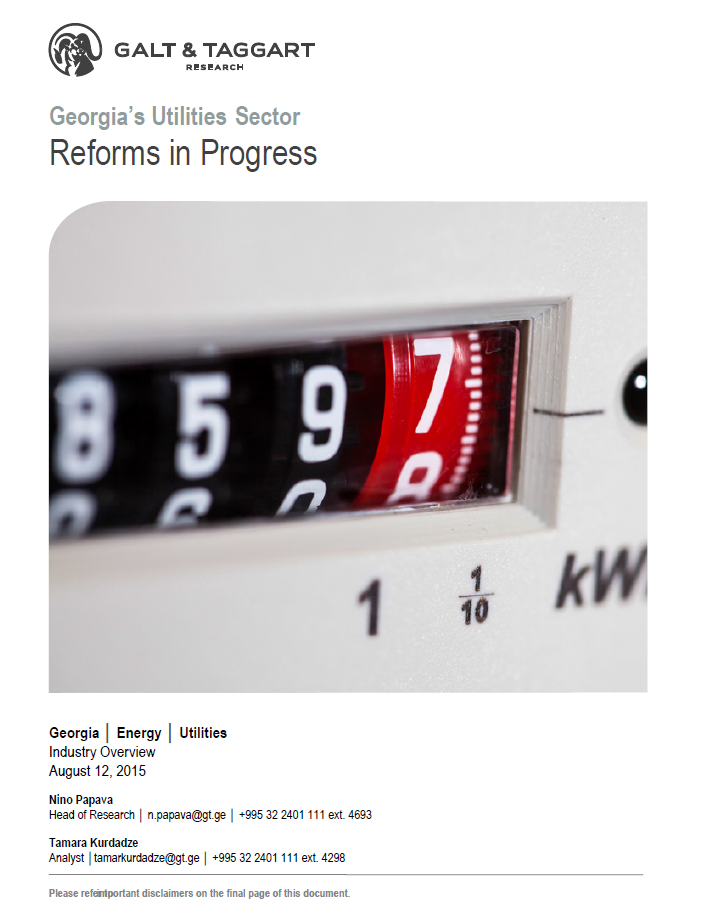Georgia took an important step toward EU integration by signing the Association Agreement in June 2014. EU integration processes require compliance with the legal standards of EU member countries. As an integral part of this process, Georgia is introducing legal reforms in the energy and water supply and sanitation (WSS) markets. The reforms are aimed at guaranteeing the financial sustainability of utility suppliers while ensuring stable electricity and WSS supplies.
The new model for setting prices for regulated utilities is a hybrid of “incentive-based” and “cost plus” models. This model aims to prevent sudden increases in utility prices and overinvestment, while allowing for a reasonable markup on the capital and operational expenses companies must incur for continued operations and innovation. Incentive-based regulation also rewards utilities for operational efficiency and penalizes poor performance.
“Incentive-based” regulation is aimed at reducing costs, while “cost plus” caps CAPEX for regulated companies for a given regulation period. Incentive-based regulation incentivizes companies to improve service quality in a cost effective way and allows them to retain savings from efficiency gains. The “cost plus” approach sets a ceiling on CAPEX, incorporating a specific return on the regulatory asset base (RAB) – assets used to conduct regulated activities. The weighted average cost of capital (WACC) for a utility is used as the allowed return on the RAB. The WACC measure is fixed by GNERC at 13.54% for the 2015-17 price control period.
The reform of electricity market price control regulation will pave the way for the WSS market, which is just embarking on reforms. The regulator plans to engage an independent utility consultant to efficiently implement reforms. Infrastructure needs to be rehabilitated to ensure continuous, high quality service supply to 100% of the population by 2020 – a goal set by the Government of Georgia (GoG). Moreover, there must be adequate revenue potential to generate much needed investor interest in the sector.
The necessary institutional framework is in place to ensure a smooth transition in the electricity and WSS markets. The experience of western countries shows the importance of an independent and transparent regulatory body. Georgian National Energy and Water Supply Regulatory Commission (GNERC), which regulates both the electricity and water markets, is financially independent from the GoG, with accountability mechanisms in place for the commission to remain impartial and efficient.
It is too early to evaluate the effects of the implemented reforms on the electricity and WSS market. International experience shows that successful reform implementation should result in increased productivity and higher service quality. The most significant indicator of effective implementation would be Georgia joining the European energy community and gaining access to the unified grid of EU countries – the European Network of Transmission System Operators for Electricity (ENTSO-E). Once connected to ENTSO-E, Georgia will be able to export electricity to Eastern European countries through energy swaps.
